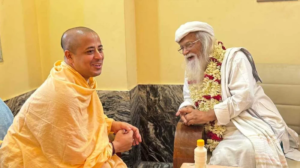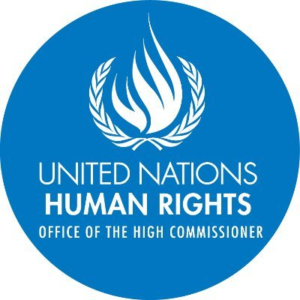UN May Intervene to Protect the Jumma People in Bangladesh’s Chittagong Hill Tracts

The Plight of the Jumma People
The Jumma people, an indigenous community residing in the Chittagong Hill Tracts (CHTs) of Bangladesh, showcase a rich cultural heritage that spans centuries. Historically, these communities have maintained a harmonious relationship with their land, focusing on sustainable agriculture and communal living. However, over the past few decades, they have faced significant challenges from state policies, economic disadvantages, and the encroachment of external interests in their territories.
In recent years, there has been an alarming increase in violence and human rights violations against the Jumma people. Reports indicate rising forced displacements, often orchestrated by military and governmental forces. These displacements are usually motivated by land acquisition for various developmental projects or extraction industries that prioritize state or corporate interests over the indigenous population’s rights. The displacement not only disrupts the Jumma people’s way of life but also infringes upon their cultural identity and social structures.
The situation calls for an immediate response, as the plight of the Jumma people illustrates broader issues concerning indigenous rights, land ownership, and the state’s responsibilities in protecting marginalized communities. Failure to address these critical issues could lead to irreversible consequences for the Jumma people’s future and the preservation of their cultural heritage.
A Call for Immediate Action
The United Nations has recently taken significant steps regarding the alarming situation faced by the Jumma people in Bangladesh’s Chittagong Hill Tracts. On October 15, 2024, a joint statement was issued by several prominent UN representatives, including the Special Rapporteur on the Rights of Indigenous Peoples and the UN High Commissioner for Human Rights. This statement vehemently called upon the Bangladeshi government to take immediate action to halt the disturbing violence directed towards the Jumma community.
The focus of the UN’s appeal centers on ensuring accountability for the perpetrators of violence against the Jumma people. The statement emphasized the importance of investigating incidents of violence and ensuring that those responsible are held accountable under international laws and standards. This demand reflects the UN’s stance that justice and transparency are critical for fostering an environment where the Jumma people’s rights, culture, and way of life can be maintained and respected.
Furthermore, the UN representatives underscored the urgent need for the Bangladeshi government to prioritize protecting indigenous rights. The statement highlighted the significance of safeguarding the Jumma peoples’ land and resources, vital to their identity and livelihood. This aligns with international treaties and conventions that recognize indigenous communities’ unique status and rights, including the United Nations Declaration on the Rights of Indigenous Peoples (UNDRIP).
The UN’s commitment to closely monitor developments in the Chittagong Hill Tracts signifies an important milestone in international advocacy for indigenous rights. The UN’s ongoing efforts highlight the importance of addressing the grievances of the Jumma people through constructive dialogue and policy reforms aimed at fostering peace and reconciliation within the region.
Historical Context of Violence and Discrimination
The Jumma people, comprising various indigenous groups in Bangladesh’s Chittagong Hill Tracts (CHTs), have faced prolonged discrimination and violence throughout their history. Since the British colonial era and continuing through the post-independence period, the systemic marginalization of the Jumma community has been exacerbated by national policies that prioritize economic development at the expense of indigenous rights. Such policies have frequently resulted in forced evictions from ancestral lands, leading to dislocation and loss of livelihood for many Jumma individuals.
The establishment of the Bangladesh state in 1971 marked a turning point, as the newly formed government intensified its focus on integrating the CHTs into the national framework. This integration often came with militarization and the imposition of Bengali settlement policies, which disrupted the traditional way of life for the Jumma people. Military presence became prevalent, creating an environment of fear among the indigenous populations and contributing to a cycle of violence and repression. The rise in conflicts over land and resources between the state-supported settlers and the indigenous Jumma has further fueled tensions, leading to numerous instances of human rights abuses.
These dynamics cannot be viewed in isolation; instead, they are deeply entrenched in the socio-political fabric of Bangladesh. The lack of recognition and legal protection of indigenous rights has rendered the Jumma vulnerable, leaving them without an adequate voice in political processes. Moreover, the broader societal attitudes towards Indigenous groups often reflect prejudice and discrimination, compounding the challenges faced by the Jumma. Therefore, understanding the historical context of violence and discrimination against the Jumma people is vital to addressing the current crisis and advocating for their rights and dignity moving forward.
The Path Forward: Implementing the CHT Peace Accords and Ensuring Rights
The Chittagong Hill Tracts (CHT) Peace Accords, signed in 1997, are a significant framework for addressing the historical grievances faced by the Jumma people, an indigenous community in Bangladesh. The accords outline a set of commitments to foster autonomy, ensure cultural identity preservation, and safeguard their rights. However, despite two decades since their inception, many of the provisions remain unimplemented, leaving the Jumma people vulnerable. The UN’s call for action underscores the urgency of realizing these accords to promote the well-being of indigenous communities.
To ensure that the Jumma people’s rights are respected, both the Bangladesh government and international stakeholders must prioritize implementing the CHT Peace Accords. This includes establishing mechanisms for local governance that empower Indigenous voices in decision-making processes. Advocating for reforms that provide genuine autonomy is essential, allowing the Jumma people to engage in self-governance and resource management. Enhanced participation in local administrative structures can facilitate the integration of their perspectives into policies that directly affect their livelihoods and cultural practices.
Furthermore, international involvement can play a crucial role in reinforcing local efforts to uphold the rights of the Jumma people. The UN can assist in monitoring the implementation of the accords and providing platforms for dialogue among stakeholders. This encourages an inclusive approach towards peacebuilding in the region. International human rights organizations can amplify their voices and raise awareness about their plight, compelling the Bangladesh government to take necessary actions.
In summary, achieving long-lasting peace and security for the Jumma people is contingent upon a collaborative approach that emphasizes the effective implementation of the CHT Peace Accords. By prioritizing these strategies, stakeholders can create an environment where Indigenous communities can thrive, and their rights are guaranteed. The road ahead requires dedication, commitment, and recognition of the unique identities and contributions of the Jumma people.








